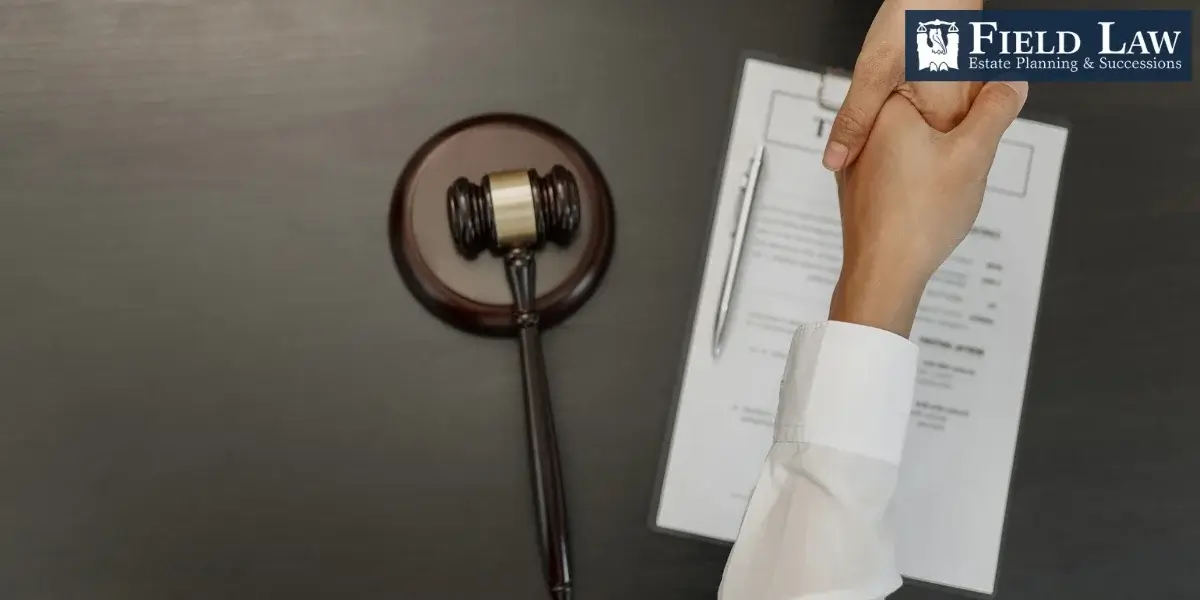Zachary Succession Lawyer
Zachary Succession Attorney
Losing a loved one is hard. Managing their estate shouldn’t add more stress to the grieving process. Succession law in Louisiana serves an important role in helping people manage the deceased’s assets and obligations. To learn more about what to do during a succession, working with a Zachary succession lawyer can empower you to make the right choices for you and your family.

What Is a Succession?
There are two types of succession: testate and intestate. A testate succession involves a will, which allows the decedent to decide who inherits their property before their death. If no will was created before they perished, it is considered an intestate succession, and Louisiana law will guide the resolution.
Successions involve an executor, who is either named in the will or appointed by the court. This person manages the estate until it can be closed. They pay any debts incurred, distribute any property accrued, and make sure the succession is carried out legally.
The process usually starts with filing a court petition and other documents, like the will, a death certificate, and a list of what assets the decedent owned. The court then reviews these documents and confirms the reputation of the executor before granting them the power to manage the estate.
Common Issues With Succession
There are many steps in the succession process, like paying debts, dividing assets, and resolving problems. Many conflicts can come up while this occurs, including:
- Missing or Invalid Wills: If the decedent’s will is lost or does not meet Louisiana’s requirements, it could result in intestate succession. A court might deem the instructions in a will invalid, which can alter how assets are distributed. This can lead to unintended people receiving assets or family heirlooms being distributed against the decedent’s wishes.
- Heir Disputes: Disagreements among heirs can delay or disrupt the succession process. Many conflicts happen over property value, how assets are divided, or personal attachments. These issues might require mediation or even court intervention. Family dynamics and long-term issues often surface during succession, which can make otherwise straightforward distributions into emotionally charged situations.
- Unclear Ownership: In some cases, a property could be titled incorrectly or might not have clear documentation. These situations could complicate succession, and resolving them might involve title searches or legal action to determine who actually owns them. Blended families, second marriages, and informal arrangements could need further investigation to establish who really owns the title.
- Challenges Surrounding Debt: Estates riddled with debt can limit what their heirs receive. Executors have to prioritize debts before distributing assets. Sometimes, debts are not fully known until the succession process starts, which can complicate matters.
- Out-of-State Heirs: If some heirs live outside Louisiana, the succession might have to partially be handled remotely. Courts might require more steps to verify the identity of people who cannot come to the state in person. Distance can make document signing, court appearances, and management decisions more difficult, which is why working with an attorney can in Zachary is greatly benefit the family in this situation.
Clear planning and professional guidance can reduce delays, especially with the help of an estate planning attorney.
Practical Tips
Several strategies can streamline the succession process. Most importantly, gather all relevant documents as soon as possible once the decedent passes. Delays in this process can slow the succession down because evidence is usually needed to move forward.
If a will names an executor, their role should be verified. If there was no executor listed, then one must quickly be found to keep the procedure moving. Throughout the process, keep lines of communication open. Update heirs regularly to prevent misunderstandings and develop trust among family members. This can be important with more complicated successions or those that take a long time to resolve.
FAQs
Q: Who Can Open a Succession After a Loved One’s Death?
A: Who can open a succession after a loved one’s death depends on the decedent’s family situation. If there was an executor stated in the will, then they have to start the process. If there was no explicit individual named in the will or if there is no will at all, then the closest family member has to start this process. The goal is to make sure the decedent’s property, rights, and obligations are transferred or resolved.
Q: What Documents Do You Need to Start a Succession?
A: The documents you need to start a succession include the decedent’s will if they made one, a death certificate, and a record of the assets they owned and debts they had. You could also need property deeds, account statements, and titles for assets like vehicles. If there is no will, you should try to find documents to prove that the family is related to the decedent, like birth certificates or marriage records. These documents will have to be submitted to the court.
Q: How Is Property Divided in a Louisiana Succession?
A: Property is divided in a Louisiana succession based on whether the decedent left a will. A will usually details how the assets are to be distributed, with some exceptions based on state law. Louisiana has specific laws that guide the succession process if the decedent does not have a will. These laws usually prioritize the decedent’s closest relatives, with the exception of community property between the decedent and their spouse.
Q: What Happens If There’s No Will?
A: If there’s no will, the succession usually follows Louisiana intestacy laws. These laws aim to support any heirs the decedent had, like spouses, children, and other close family members. If there are no direct relatives, the property could go to more distant relatives. A court usually monitors this process to make sure it is done fairly and in compliance with state law. Intestacy laws provide clear instructions for succession for people who die without making a will.
Find Closure
Learning more about succession law can help you make clearer choices about your late loved one. Regardless of how simple or complicated a succession might be, scheduling a consultation with Field Law can clarify this process. With the right support and an effective plan, you can honor your loved one and respect their wishes.



